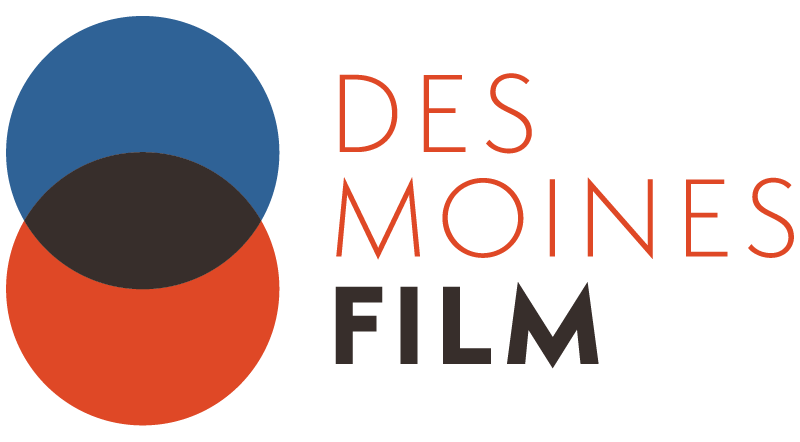
The Olympic Games Documented on Film: 1938-1986
There are few, if any, events on the worldwide stage that can match the excitement, scope and grandeur of the Olympics. My earliest Olympic memories are from 1968, when the Winter Games were held in Grenoble and the Summer Games were in Mexico City. Both festivals (held in the era when both games were contested in the same year) were broadcast by the ABC Television Network. They were the first Olympics to be televised in color – we only had a small black and white TV in our house – as well as the first to employ satellite coverage. My most distinct recollections of Grenoble are Peggy Fleming’s gold medal efforts in women’s figure skating and Frenchman Jean-Claude Killy’s historic sweep of the alpine skiing events in his home country.
My real interest, like the majority of sports fans, was in the Summer Games. Among my many memories of that festival are George Foreman’s second round TKO of a Russian opponent to win the gold medal in boxing’s heavyweight division; Dick Fosbury’s gold medal performance in the high jump using his unconventional “Fosbury flop” technique which would revolutionize that field event; Bob Beamon’s annihilation of the world record in the long jump by an astounding twenty-two inches; and Jim Hines record-shattering performance in the 100 meters,
earning him the title “the world’s fastest human.”
Some memories still exist due to their startling nature, such as the upset of number one world-ranked miler and prohibitive favorite Jim Ryun by Kenya’s Kip Keino, who won by a staggering twenty meters; and U.S. sprinters Tommie Smith’s and John Carlos’ one-three finish in the 200 meters, the joy of which soon was soon dashed by the harsh controversy that erupted when the two gave the black power salute on the medal stand. Frankly, I was too young to understand the import of the message being made by the two African-Americans who daringly used the Olympic stage to make a political statement. Nevertheless, after watching extensive discussions of it by commentators (and hearing my older brother’s stab at explaining it to me), I only sort of understood why white America was so bothered by a couple of raised fists. After all, wasn’t America the country that championed freedom of speech and the right of self-expression? Obviously, I had a lot to learn… and, perhaps, so does America. Still.
Until recently, my impression of that historic Olympic year was that we watched hour upon hour of coverage. It wasn’t until I saw a chart indicating the ever-expanding number of hours of Olympic coverage over the years that I realized that we saw comparatively little action back in 1968. Of course, there are several reasons for the explosion of coverage since then, not the least of which was the fact that those and subsequent games provided so much drama that it became clear to the networks that America’s Olympic appetite was nearly insatiable. Other reasons included the rapid increase in satellite availability over the following decades and the growth of television corporations able to broadcast coverage on multiple networks.
While television coverage is timely, it is also transitory. I can’t imagine anyone slogging through dozens, even hundreds, of hours of coverage from past Olympic Games, even if available. Prior to the days of extensive television broadcasts, for most people, the Olympic experience was confined to newspaper and magazine accounts, or newsreel shorts seen in movie theaters. That is, except in those rare instances where filmmakers took on the gargantuan task of shooting canister upon canister of film stock for feature-length documentaries of specific festivals. Such documentaries present the full scope of a festival, synthesizing that whole to its very essence. Between 1938 and 1986, several Olympics documentaries were made that have become bona fide classics, while others, though also of remarkable quality, have become extremely difficult to find. Many of the most noteworthy titles are presented here.
The first major stab at recording an Olympic festival appears to be Leni Riefenstahl’s Olympia Part One: Festival of the Nations and Olympia Part Two: Festival of Beauty, which document the 1936 Berlin Summer Games. Released on April 20, 1938, the documentaries are beautifully-shot records of those games and stand not only as two of the best examples of sports documentaries, but also as documentaries at large. Riefenstahl, of course, is notorious for directing Triumph of the Will (1935), the (unfortunately effective) propaganda film glorifying the Nazi Party at their 1934 rally in Nuremberg, Germany. This German filmmaker was a complex woman who spent the rest of her life denying any close ties to the Nazi party – she apparently was never a party member – but her subsequent work (when she could get it) was nearly always viewed in light of TotW. Surprisingly, her Olympia docs contain little, if any, of the propagandistic elements one would expect to see in films that were commissioned by that same Nazi party.
The rarely-viewed Olympia 52 (1952) receives mention due to the fact that it was the first film made by esteemed French documentarian Chris Marker. The 82-minute documentary details the 1952 Summer Games held in Helsinki, Finland (which had originally been chosen as the site of the 1940 Summer Games before WWII caused their cancellation). Marker was a prolific filmmaker known for such documentaries as Le joli mai and Sans Soleil, as well as the influential narrative short La jetée, the inspiration for director Terry Gilliam’s later classic Twelve Monkeys.
The 1964 Summer Games are the subject of famed narrative filmmaker Kon Ichikawa’s (The Makioka Sisters) Tokyo Olympiad (1965). Long considered one of the masterpieces of sports documentaries, the financiers of the film, the Japanese Olympic Committee, were initially appalled by Ichikawa’s finished product. The 170-minute movie covers all aspects of the Olympic experience from the perspective of both winners and losers, showing little regard for highlighting records or focusing on the most famous athletes. Ichikawa was forced to re-edit (and shorten) the film to their specifications, but the original cut has long been the most sought after version. Interestingly, Japan’s most renowned film director, Akira Kurosawa, was originally hired to make this film, but was fired when he insisted on having complete creative control, including being in charge of the production of the opening and closing ceremonies!
Grenoble (1968), co-directed by celebrated narrative filmmaker, and sometime documentarian, Claude Lelouch (A Man and a Woman) and documentarian, and sometime narrative filmmaker, François Reichenbach, is a record of the 1968 Winter Games in their native France. It may be the first major documentary to focus on the Winter Games.
Visions of Eight is a 1973 American documentary film, produced by David L. Wolper (Roots) and Stan Margulies (Willy Wonka and the Chocolate Factory), offering a stylized look at the 1972 Summer Olympics, with segments directed by eight different internationally-known directors. Milos Forman, Kon Ichikawa, Claude Lelouch, Yuriy Ozerov, Arthur Penn, Michael Pfleghar, John Schlesinger, and Mai Zetterling all contributed to this 110-minute film. Of the eight filmmakers, only John Schlesinger (Midnight Cowboy) veered from the main focus of his segment (about on a British marathon runner) to comment on the biggest story of those Munich games: the killing of eleven Israeli Olympic athletes and a German police officer by the Palestinian terrorist group Black September.
Another seldom-seen Olympic documentary is Tony Maylem’s rather brief (76 minutes) White Rock (1977), covering the 1976 Winter Games in Innsbruck, Austria. Although the film features some amazing images of events taking place on ice and snow, the project is very possibly better remembered for its audio track. The narration was provided by the distinctive voice of long-time Hollywood star James Coburn, while the musical soundtrack was created by progressive rock icon Rick Wakeman (Yes). Finding a copy of this film is nearly impossible, but Wakeman’s original music score is still readily available.
Highlights from the 1984 Summer Olympic Games in Los Angeles are featured in 16 Days of Glory (1986), directed by Bud Greenspan, a filmmaker whose name became almost synonymous with Olympic documentaries. Between 1976 and 2009, Greenspan made around twenty documentaries for television summarizing various Winter and Summer Games, or focusing on a particular participant. This 145-minute film is an excellent distillation of those 1984 games, and was a rare theatrically-released production for Greenspan.
The days of feature-length filmed documentary records of individual Olympic Games is longo gone, usurped by its home-focused competitor, television. The documentaries summarized above are now both historical records and time capsules of earlier times. As such, they are well worth seeking out.
Kevin Kretschmer is a librarian at the Franklin Avenue Branch of the Des Moines Public Library. He has a B.A. in journalism from the University of Iowa, an M.A. in Film Studies, also from the University of Iowa, and an M.L.I.S. in Library and Information Studies from Dominican University.

